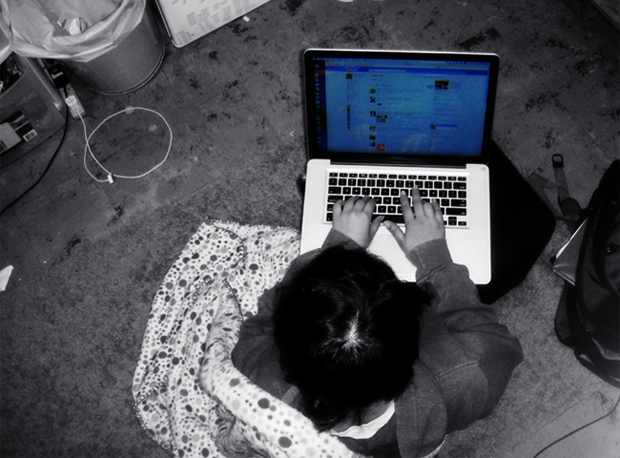
Is There Any Take-Away from This Long, Anguished Summer of Bad News
Finally our eyes settled on Ferguson, Missouri, where America’s white supremacist past and present converged around the death of Mike Brown at the hand of a white officer. A boy lay dead on the street for hours, shot six times by a policeman, and then tank-like vehicles and tear gas rolled in to corral those who protested his senseless loss into a stunned submission they weren’t ever going to offer. And the papers of record noted that he was “no angel,” as if that somehow indicted him, made him different from any other teenager.
All summer long other sorrowful stories plodded onwards, too: young children, refugees, arriving at our borders. Those who callously protested the arrival of these desperate immigrants, urging they be sent home to death and want, did not get tear gassed or threatened by police. Meanwhile we heard more and more about ISIS cutting a swath of terror throughout Syria and Iraq, driving refugees before them, murdering in cold blood: their own, then our own. And all the while, the earth’s surface heats up, promising more strife as we fight for resources and land in the future. So here we are at the end of the Jewish year, reeling from one of those summers when the world has seemed like an intrinsically bad place.
But maybe that is just the realization we need. Yes, the world is unfair. The world is not organized or just. And the sooner we come to understand that, the more we can get to work making change. Katherine Cross wrote a piece in Feministing that reminds me why this kind of summer creates so many virulent, nasty responses from observers of what I see as clear wrongdoing. Cross note that the “just world fallacy,” the common idea that “things happen for a reason,” offers a false sense of order, and causes its adherents to blame victims, reflexively. It presents us the perfect excuse to turn our heads from a piercing reality.
“People are quick to seize on the imperfections of victims because it gives us a sense of justice with none of the hard moral work involved,” Cross writes. “The just world hypothesis asks nothing of us but the occasional ‘tut tut’ to the less fortunate.” In other words, it’s a belief system that props up structural inequality: it makes the foundations seem invisible.
In part, this why some are inclined to blame child victims in wartime, saying, well their parents should have voted differently, as if that somehow implicates them in their own deaths; why others heap xenophobic angst onto the backs of innocent refugees arriving at our shores; why we accept for one minute the idea that black Americans are being routinely murdered without trial by the law that’s supposed to protect them. We don’t want to confront the fundamental injustice of the system, nor the idea that those with weapons will use them first and talk later.
Cross writes that she doesn’t believe in a just world, she believes in just people. People willing to give up their own illusions to stand up for others. That has been the mantra I’ve carried with me as summer ends. I’ve carried it along with one from Israeli novelist Etgar Keret. He wrote that he eschews the word “peace” because it seems passive, preferring “compromise” which indicates that people have to give something up: “They must be willing to accept the assumption that beyond the just and absolute truth they believe in, another truth may exist.” Just people, not just truths. Compromise.
So as the days get cooler and longer (it’s the ice caps melting, my mom says), I’ll think about just people in an unjust world. I’ll think about Ruth Bader Ginsburg, fighting notoriously until her last days. I’ll think of Hedy Epstein, the Holocaust Survivor, age 90, who was arrested in civil disobedience against police brutality in Ferguson. I’ll think about the Missouri moms marching for a better life for their kids, risking arrest. I’ll think of the people quietly shedding their own privileges and protections to stand up for others. They know the truth: we can’t pray for a divine intervention to come in and wash away the old injustices. We have to break down those walls ourselves.



